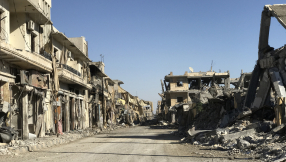
Facebook recently announced that they will be employing new ways to combat fake news. Whereas the platform previously used a method called "Disputed Flags," they would now make use of the Related Articles feature to reduce the spread of misinformation.
The platform ditched the "Disputed Flags" system for several reasons. First, they stated that a strong graphic image like a red flag tends to entrench people's deeply held beliefs. They say that this is "the opposite effect of what we intended."
The "Disputed Flags" method only meant to call out news items that possibly contain misinformation. Unfortunately, the red flag may instead be a catalyst to people sharing the news, making it more prominent instead of actually burying it.
They thought that the Related Articles feature is a better alternative. Unlike "Disputed Flags," the feature actually adds context by suggesting other articles connected to the fake news. This is one of the advantages of the system, giving more insight into the issue instead of just flagging it with a red icon.
Furthermore, Related Articles is a much faster method of identifying news items that contain misinformation. Whereas "Disputed Flags" needed two fact-checkers to flag an item, Related Articles only needs one. This speeds up the identification process for fake news.
Facebook cited academic research that tested the efficiency of both methods. In the test, Related Articles did not really prompt users to click through fake news fewer times. It did, however, reduce the number of shares by a significant amount compared to "Disputed Flags."
These results, combined with the better speed and efficiency, made the Facebook switch to Related Articles as their standard.
In addition to this, Facebook stated that they are trying to understand how their users react to the fake news. These include factors in people judgment, like what makes them decide that the presented information is inaccurate.













